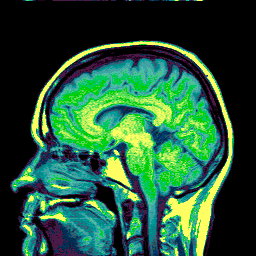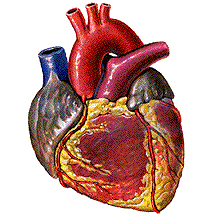 |
| from http://paularnoldwrite.eu/images/DNA_orbit_animated.gif |
- vulnerability to psychosis is acquired through a genetic predisposition, or as a result of an environmental insult to the brain.
- to manifest, the disorder must be 'triggered' by environmental processes
- the amount of environmental stress needed to 'trigger' psychosis likely differs from person to person, as does the amount of vulnerability that at risk people have for psychosis.
The 'stress' component of the model may take many forms, including: - Traumatic life events.
- Use of drugs and alcohol.
- Stressful living conditions (e.g., low socioeconomic status; high levels of family conflict).
 |
| from http://www.eyephysics.com/Madena/Pics/BrainAnimation.gif |
 |
| from http://www.animation-station.com/money/animatedmoney/4612.gif |
DECREASED STRESS TOLERANCE
 |
| from http://www.gifbin.com/bin/072010/1278324379_angry-daffy-duck.gif |
There is also some agreement that people with psychosis handle stress poorly. It seems that they have a low tolerance for stress - things that would have not been stressful for someone who does not have psychosis can prove too much for those who do have it. There is also a lower tolerance of intense emotions from others, e.g. anger, criticism, conflict or extremes in positive concern or over involvement. Clearly this makes knowing how far to push or encourage someone to do something a difficult decision. On the one hand too much pushing may lead to problems and even relapse, whereas no encouragement to do things may see someone sink into apathy and withdrawal.
Certain factors can also reduce the risk that an at-risk person will develop psychosis: - Use of appropriate prescription medication.
- Use of stress management techniques.
- Reliable support systems (e.g., family, a hospital day program).
Learn to recognize what signs indicate a person needs time out:
-
- pacing
- restlessness
- nervousness
- disturbed
 |
| from http://www.goevangelism.com/images/117_pacing.gif |
Psychosis is a stress sensitive illness with a diminished tolerance of stress including lower tolerance for interpersonal relationships and stress common to family and friendship.
- Allow the person to close the door of their room.
- Although the person may not be able to have a conversation; they can socialize by playing board games, cards, TV, movies, crafts, gardening.
- Be reassuring - It's Ok if you get nervous, just sit with me for a while
- Provide a structured and predictable environment.
 |
| from http://www.auburn.edu/~murraba/innov/door_animated.gif |
- Let them know in advance if company is coming.
- Encourage participation in family activity, but accept refusals.
- Give choices - maybe quiet outing like a walk in the park rather than shopping in the mall.
 |
| from http://www.ryanloghry.com/images/monkey_walk_book.gif |
Caregivers should agree on a plan of action and follow it. If you are predictable in the way you handle recurring concerns, you will help to reduce confusion and stress for the ill person.
Maintain peace and calm at home.
You will want to keep voices down and speak at a slower pace. Shorter sentences will also help to reduce stress. Avoid arguing about delusions (false beliefs).
Together learn how to cope with stress.
Anticipate ups and downs and prepare accordingly. A person with psychosis needs to learn how to cope with stress in a socially acceptable manner. Your positive role modeling will be most helpful.
- Help your relative plan strategies for dealing with stress at events e.g. go to the washroom, outside for air, come late, leave early
Physiological: How the Body Responds
- Rapid pulse
- Increased perspiration
- Pounding heart
- Tightened stomach
- Tensing of muscles in arms and legs
- Shortness of breath
- Gritting of teeth
- Clenching of jaw
- Inability to sit still
- Other
 |
| from http://www.heart-valve-surgery.com/Images/heartbeat-animated.gif |
- Racing thoughts
- Inability to concentrate
- Difficulty making simple decisions
- Loss of self-confidence
- Irritability or frequent anger
- Insatiable cravings
- Worry or anxiety
- Irrational fear or outright panic
- Other
 |
| from http://i119.piczo.com/view/1/l/c/l/n/k/3/w/g/h/2/x/img/t186751517_30240_3.gif |
- Smoking
- Increased use of medication
- Nervous tics or mannerisms
- Absent-mindedness
- Accident proneness
- Hair pulling, nail biting, foot tapping
- Increased or decreased eating
- Increased or decreased sleeping
- Increased use of alcohol or drugs
- Reckless driving
- Inappropriate aggressiveness
- Other
 |
| from http://www.gifninja.com/Workspace/59abe36f-e7f5-4e28-b1d1-70f3294121bf/output.gif |

No comments:
Post a Comment